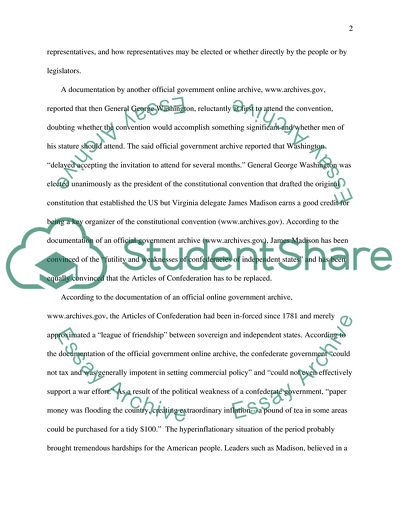Cite this document
(Political Reflections on the Original American Constitution Assignment, n.d.)
Political Reflections on the Original American Constitution Assignment. Retrieved from https://studentshare.org/politics/1571247-did-the-original-constitution-create-a-representative-democracy-based-on-elections-a-pluralist-democracy-based-on-factions-some-form-of-elite-system-based-on-rule-by-a-handful-or-hyperpluralism-with-a-weak-central-government-dominated-by-factions-or-s
Political Reflections on the Original American Constitution Assignment. Retrieved from https://studentshare.org/politics/1571247-did-the-original-constitution-create-a-representative-democracy-based-on-elections-a-pluralist-democracy-based-on-factions-some-form-of-elite-system-based-on-rule-by-a-handful-or-hyperpluralism-with-a-weak-central-government-dominated-by-factions-or-s
(Political Reflections on the Original American Constitution Assignment)
Political Reflections on the Original American Constitution Assignment. https://studentshare.org/politics/1571247-did-the-original-constitution-create-a-representative-democracy-based-on-elections-a-pluralist-democracy-based-on-factions-some-form-of-elite-system-based-on-rule-by-a-handful-or-hyperpluralism-with-a-weak-central-government-dominated-by-factions-or-s.
Political Reflections on the Original American Constitution Assignment. https://studentshare.org/politics/1571247-did-the-original-constitution-create-a-representative-democracy-based-on-elections-a-pluralist-democracy-based-on-factions-some-form-of-elite-system-based-on-rule-by-a-handful-or-hyperpluralism-with-a-weak-central-government-dominated-by-factions-or-s.
“Political Reflections on the Original American Constitution Assignment”. https://studentshare.org/politics/1571247-did-the-original-constitution-create-a-representative-democracy-based-on-elections-a-pluralist-democracy-based-on-factions-some-form-of-elite-system-based-on-rule-by-a-handful-or-hyperpluralism-with-a-weak-central-government-dominated-by-factions-or-s.


